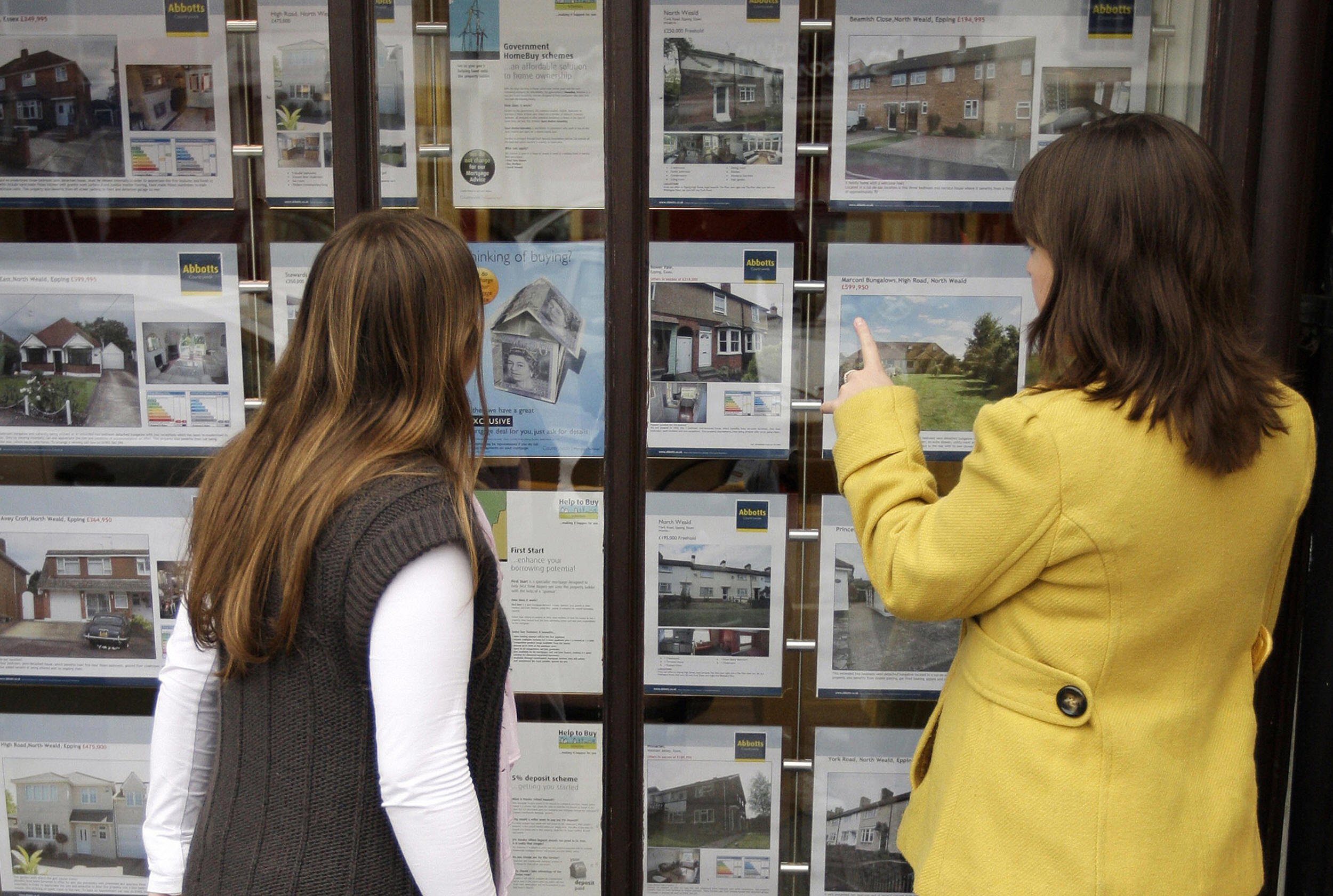
With the average price of property in some parts of the U.K. now more than 12 times the average salary, getting on the housing ladder can prove an extraordinarily tough proposition.
Ten years ago, it was common for banks to loan the entire cost of a home, to provide a 100 percent mortgage. Northern Rock even granted homebuyers 125 percent mortgages.
Following the financial crash in 2008, loans of 100 percent or more quickly disappeared from the market.
In a shock move, Barclays has this week brought the practise back, the first major bank to do so.
What is a 100 percent mortgage?
With a 100 percent mortgage you borrow the entire purchase price of the property and put down no deposit. In other words, you can buy a house without having saved any money.
In the case of Barclays, the deal had previously allowed people to climb on to the property ladder with a 5 per cent deposit, provided that a "helper"—often the homebuyer's parents or grandparents—puts 10 percent of the house purchase price into a savings account linked to the mortgage.
But under the new deal, only the 10 percent guarantor contribution is needed. This cash will be returned to the borrower's parents after three years with interest added—provided borrowers have kept up with their mortgage repayments.
What are the advantages of a 100 percent mortgage?
The main advantage of a 100 percent mortgage is that, quite simply, it lets you buy a home without having saved a deposit.
In the case of 100 percent mortgages that require a guarantor, they provide an alternative to gifted deposits for family members who want to help you onto the property ladder.
What are the risks of 100 percent mortgages?
The biggest risk of 100 percent mortgages is falling house prices. If the value of the property decreases you could be in negative equity—owing the bank more than your property is worth.
When 100 percent mortgages were more common, many people took out the loans banking on increasing property prices to quickly reduce the loan to value. When the property bubble burst in 2007/08, thousands of borrowers were faced with the prospect of negative equity, high repayments and the risk of job loss as the wider economy faltered.
Some lenders even went further, with banks including the late Northern Rock, Abbey National, Bradford & Bingley and Scottish Widows offering mortgages in excess of the property's value.
Northern Rock's Together mortgage is the most notorious. First-time buyers were able to borrow up to 125 percent of the property's value.
When house prices were rising, borrowing more than the value of your home was not necessarily a huge problem because you would quickly build up an equity stake through property price inflation alone. But when the credit crunch hit, and the house prices fell, many people were left with homes that were worth less than the amount they paid for them—negative equity. Those who took out 100 percent-plus mortgages were left in the worst situation because they had no capital of their own in their property to cushion them from price falls.
The last 100 percent mortgage disappeared in 2008 and for years it seemed that the concept that had left so many homeowners with negative equity was extinct.
Which is why Barclays' news is such a shock to the market.
But it is important to note, although lenders may have found a new way to offer 100 percent mortgages by asking borrowers to find a family member to stump up additional security, nothing much has changed in the fact that they put you at risk of negative equity.
The deal also favors those who have the luxury of a family member who is willing to stand as a guarantor and as fewer lenders offer 100% mortgages, there is a distinct lack of choice.
Ultimately, If house prices fall, you could find yourself paying a mortgage that is more than the value of your house, which means selling or moving will be both expensive and challenging.
Should you apply for a mortgage with no deposit?
Most of the time, you are much better saving for a deposit. The bigger your deposit, the better the rate you are likely to get on your mortgage. Not to mention it shows you are able to save money sensibly.
But occasionally, you may decide you are better off getting a mortgage now. Maybe rent is very expensive in your area and you think house prices are only going to keep on rising. Or you are a student but you know you will be working in your university town.
Before you decide to apply for a mortgage, it is advisable to speak to an impartial expert about your situation.
Uncommon Knowledge
Newsweek is committed to challenging conventional wisdom and finding connections in the search for common ground.
Newsweek is committed to challenging conventional wisdom and finding connections in the search for common ground.
About the writer
To read how Newsweek uses AI as a newsroom tool, Click here.








